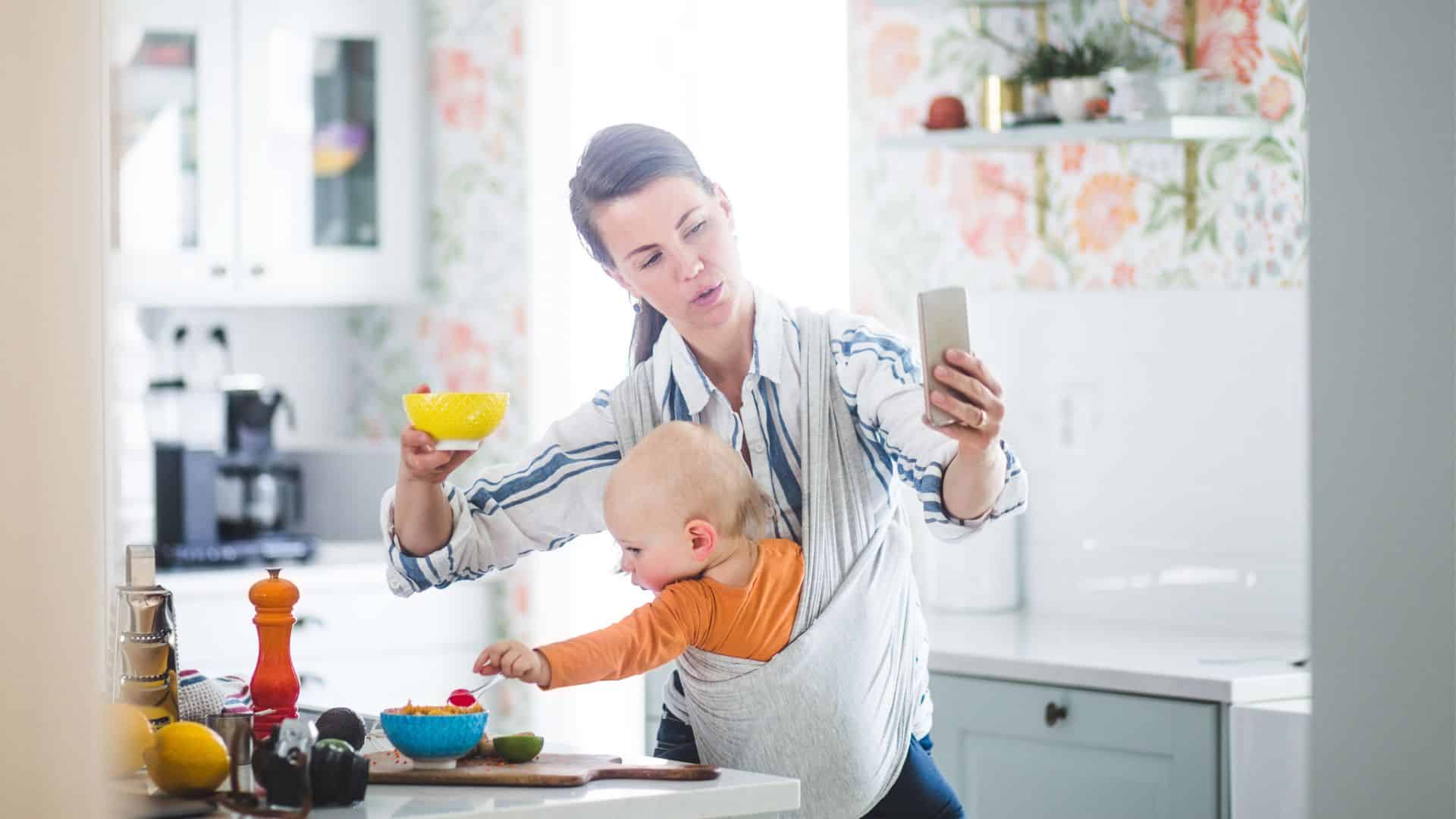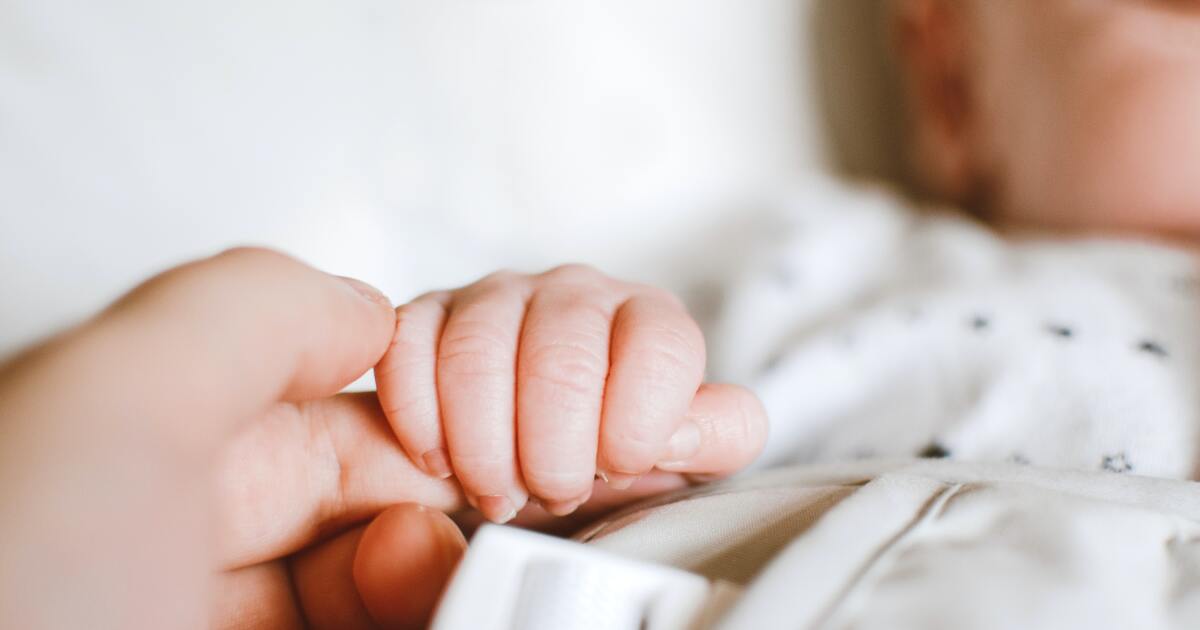Table of Contents
It wasn’t all the time this manner. Oldsters—moms, particularly—weren’t all the time bombarded with parenting-related #content material each waking second. However with the trap of Instagram’s simple scroll at your fingertips, it’s exhausting to keep away from seeing the photographs and studying the tales of different moms with ideally suited hair, blank counter tops and well-behaved youngsters dressed solely in sunset-hued, herbal fibers. And it’s exhausting to keep away from evaluating your self to those ‘momfluencers’ consequently.
A brand new find out about revealed in “Computer systems in Human Conduct” presentations that being faced with photographs of “idealized motherhood”, whether or not from your personal family and friends or from momfluencers on social media, can building up your anxiousness, envy and sense of comparability and put larger power in your intellectual fitness.
“Idealized portrayals of motherhood don’t seem to be new to the media,” says Ciera Kirkpatrick, PhD, an assistant professor at College of Nebraska–Lincoln, one of the vital two find out about authors. “Within the ’70s and ’80s, idealized portrayals of motherhood have been all over the place magazines within the type of ‘Superstar Mother Profiles.’ However now, they are all over the place social media. And whilst it was once celebrities glamorizing motherhood in the ones magazines, someone can glamorize motherhood these days on account of social media.”
Social media has remodeled the way in which motherhood is portrayed. As a result of now someone can put out idealized motherhood content material these days—from celebrities and truth stars in your cousin and nextdoor neighbor—there is simply so a lot more of it, and it’s so a lot more obtainable, Dr. Kirkpatrick notes. And the results of all the ones ‘ideally suited’-seeming posts will also be damaging.
Comparable: Quitting social media made me a greater guardian
On the lookout for a causal hyperlink between social media influencers and anxiousness
Dr. Kirkpatrick, a first-time mother herself, spotted early on after having her child that social media was once starting to have a profound impact on her personal motherhood enjoy—and no longer in a wholesome means. “As I spotted that I used to be evaluating myself to portrayals of motherhood on social media and feeling poorly after doing so, I was more and more enthusiastic about this subject and the way I may channel this phenomenon in my analysis to lend a hand different moms,” she tells Motherly.
The idea that social media influencers could have unwanted side effects on customers’ lives isn’t novel, and current analysis presentations how the idealization of motherhood on social media will also be correlated with doubtlessly destructive consumer stories, too.
However Dr. Kirkpatrick’s analysis stands proud as it was once on the lookout for causation, no longer simply correlation. Due to a background in experimental design, Dr. Kirkpatrick was once ready to craft a find out about “that might in fact supply proof of a causal courting between those actual posts on Instagram and destructive results [such as envy and state anxiety].”
Comparable: 5 steps to prevent an anxiousness spiral, in keeping with a therapist
Instagram as opposed to truth
Within the find out about, Dr. Kirkpatrick and co-author Sungkyoung Lee requested 464 new moms (who had no less than one kid elderly 3 or more youthful) to check 20 Instagram posts, 10 taken from the accounts of “mommy influencers” and 10 taken from the accounts of “on a regular basis moms.”
Part of the posts represented idealized motherhood (which Dr. Kirkpatrick explains as presenting “idealistic admirable depictions of motherhood that have been only centered at the sure sides of parenting and didn’t point out related difficulties,”) whilst the opposite part have been non-idealized (presenting “extra original, non-idealistic depictions of motherhood that did come with point out of the difficulties related to parenting”).
After reviewing the posts, the brand new moms have been requested to fee their emotions of social comparability, perceived similarity, envy and anxiousness. The effects confirmed that after new mothers have been uncovered to idealized portrayals of motherhood, that they had upper ranges of envy and anxiousness.
Comparable: How motherhood myths impacted my fight with postpartum despair and anxiousness
“And apparently, it did not topic if the idealized portrayal was once from a social media influencer [a “mommy influencer”] or a median Instagram consumer [an “everyday mom”],” says Dr. Kirkpatrick.
“Idealized content material from both of those resources had the similar destructive impact—indicating that anybody striking out idealized motherhood content material like this may have damaging results on new mothers. It is not only a drawback with influencers.” It additional highlights the truth that content material idealized for Instagram is a ways from truth.
Vulnerability in new motherhood
The postpartum duration, in fact, is a extremely susceptible time. New motherhood is synonymous with primary shifts throughout all sides of a mom’s lifestyles, together with intellectual, bodily, and financial states, Dr. Kirkpatrick says, which places moms ready of vulnerability.
One by which they is also much more liable to envy and anxiousness.
New motherhood may be a time marked by way of isolation, and social media is usually a lifeline for many who really feel disconnected from the sector outdoor their house.
Comparable: A postpartum plan is simply as necessary as a start plan. This is the way to make one
“Regardless of having change into busier with the brand new roles and obligations related to being a mom, analysis performed in Russia has indicated that moms are probably the most socially lively all through the primary yr in their kid’s lifestyles,” writes Dr. Kirkpatrick.
Social media provides alternatives for connection and friendship at a time when moms would possibly really feel like they’ve misplaced their pre-baby social lifestyles. Nevertheless it comes with strings hooked up: the comparisons and decrease self worth which are more likely to end result from viewing 1000’s of staged, idealized photographs, which the find out about authors outlined for contributors as “ideally suited or higher than truth.”
Viewing pictures of glossy, satisfied mothers with glossy, satisfied youngsters could make you are feeling such as you don’t measure up, although you’re no longer in reality getting the total photograph.
Comparable: Social media is redefining the brand new motherhood. However is {that a} just right factor?
The pull of the easiest put up
“Regardless of this analysis, I too to find myself posting what some would believe to be idealized depictions—it is simply really easy and tempting to do,” admits Dr. Kirkpatrick. “As people, we need to blow their own horns the satisfied, just right portions of our lifestyles. However on account of this analysis, I have attempted to make it some degree to additionally show off the difficulties and demanding situations.”
It’s all about curating your feed to search out the best steadiness—each with regards to who you apply and what you put up. “I feel it is vital that in the middle of posting undoubtedly biased content material, we additionally painting the truth of motherhood, as a result of speaking in regards to the hardships can lend a hand moms [especially new moms] really feel much less on my own in what they’re experiencing and feeling,” provides Dr. Kirkpatrick. “Being a mother is difficult sufficient—we do not wish to make it more difficult on every different!”
Featured knowledgeable
Ciera Kirkpatrick, PhD, is an assistant professor at College of Nebraska–Lincoln.
Assets
Chae J. “Am I a Higher Mom Than You?”: Media and Twenty first-Century Motherhood within the Context of the Social Comparability Concept. Verbal exchange Analysis. 2015;42(4):503-525. doi:10.1177/0093650214534969
Djafarova E, Trofimenko O. Exploring the relationships between selfpresentation and vanity of moms in social media in Russia. 2017. Computer systems in Human Conduct, 73, 20–27. doi:10.1016/j.chb.2017.03.021
Kirkpatrick CE, Lee S. Comparisons to picture-perfect motherhood: How Instagram’s idealized portrayals of motherhood impact new moms’ well-being. Computer systems in Human Conduct. 2022 Dec 1;137:107417.
https://www.mom.ly/health-wellness/mental-health/momfluencers-and-mental-health-anxiety/







